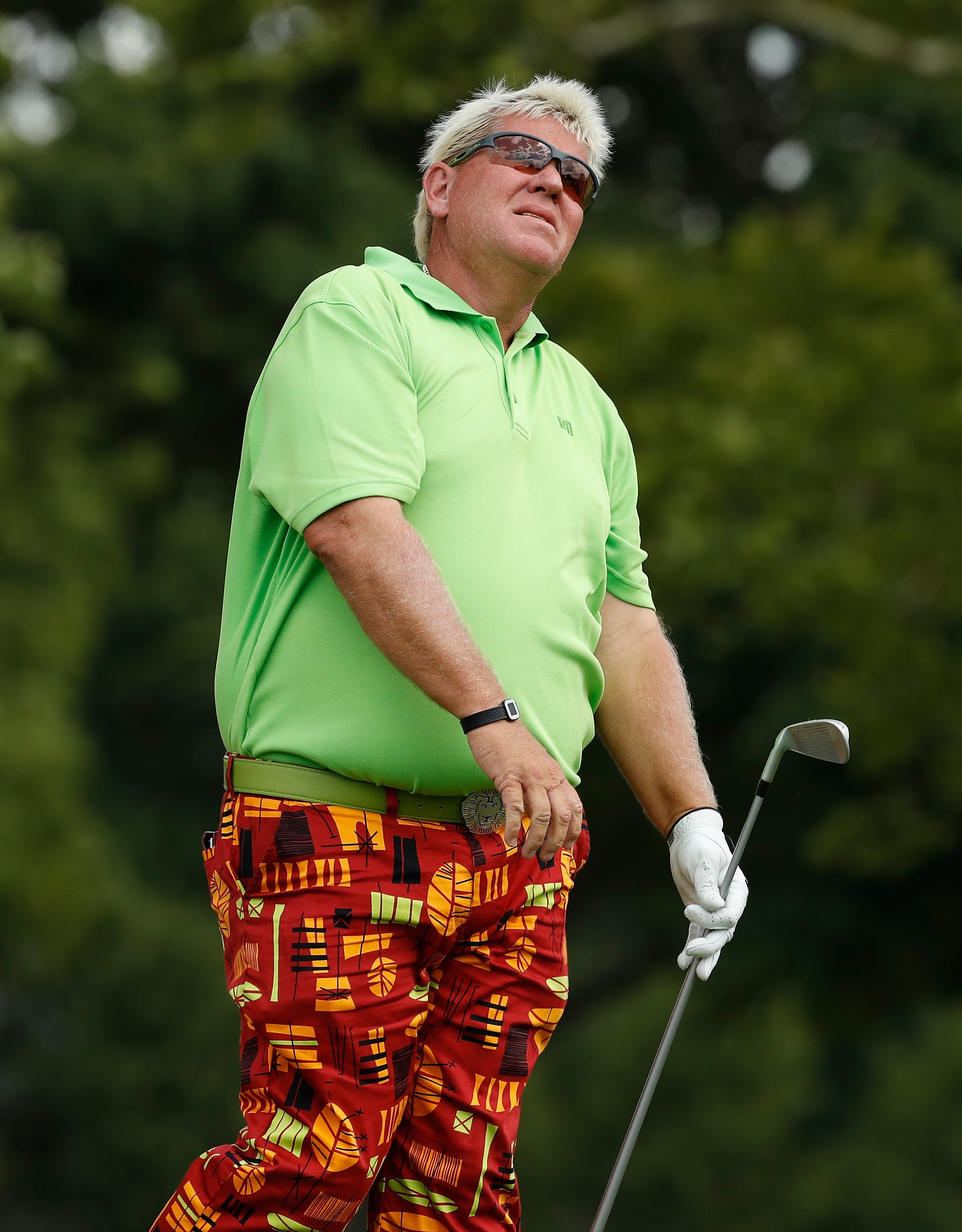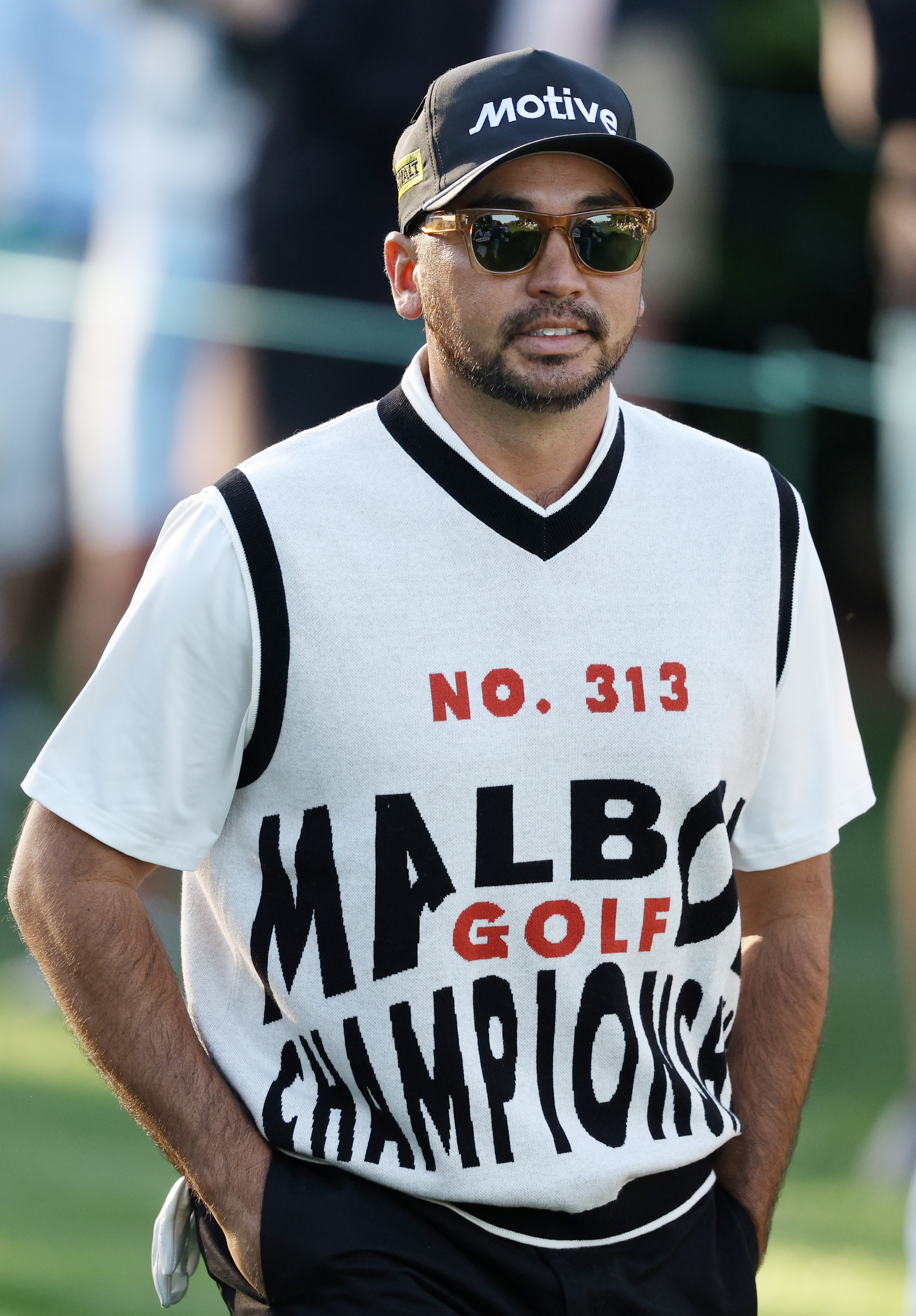Jason Day's Shocking Outfit at The Masters
Jason Day caused a stir at The Masters with his garish Malbon Golf Championship vest, leaving fans scratching their heads at his fashion choice while navigating Augusta National. But he's not the only golfer who has committed a serious fashion faux pas on the course.
John Daly's Outrageous Fashion Statements
John Daly is known for his wild and fun approach to golf, including his eccentric fashion choices. From red trousers with leaf patterns to pop art-like pants featuring hot dogs and ice cream sundaes, Daly never fails to surprise us with his outlandish outfits.
Team USA's Ryder Cup Team Fashion Disaster
The 1999 Team USA Ryder Cup team took self-celebration to a new level by wearing shirts adorned with framed images of past winners. The burgundy, ill-fitting shirts were considered vile, overshadowing their victory at the Battle of Brookline.
Ian Poulter's Eccentric Style
Ian Poulter, the English golfer, is famous for his eccentric fashion sense. From wearing an Arsenal shirt on the course to looking like a maitre d' at the Masters Par-3 Contest, Poulter never shies away from bold outfit choices.

Jarmo Sandelin's Fancy Dress Antics
Swedish golfer Jarmo Sandelin made waves with his fancy dress outfits on the course. From Terminator-like shades to 1970s dance party shirts and wigs resembling Rod Stewart's hairdo, Sandelin's outfits were truly unforgettable.
Rickie Fowler's Vibrant Style Statement
Rickie Fowler stood out in a bright orange ensemble at the 2010 Memorial, showcasing his unique style on the course. Sponsored by Puma, Fowler's colorful outfit was a nod to his personal style and college bonding experience.
More Fashion Blunders on the Course
From Duffy Waldorf's dad-like Hawaiian shirt to Rory Sabbatini's cowboy hat and skull belt buckle, golf has seen its fair share of outrageous fashion moments. Despite the questionable outfits, these golfers never let their style choices affect their performance on the course.
Frequently Asked Questions
What type of golf equipment will an older person need?
For a retired golfer who wants to get started, the basic set includes a driver and two woods. It also includes an iron, a wedge and a putting stick. You should choose clubs made for beginners or seniors. These clubs often have flexible shafts that make them easier to use. Golf shoes that are comfortable, gloves for better grip, and clothing appropriate to the weather conditions you will be playing in are all essential. As they advance, players may want to invest in specialized gear that fits their own style of play.
What are some common modifications or accommodations that can be made for retirees on the golf course?
There are several ways to enhance golfing for retirees. Power carts can reduce the strain of walking a full course, and many courses offer senior tees, which are closer to the greens. Senior flex shafts allow for a more comfortable swing. Larger grips are beneficial to those with arthritis and reduced hand strength. Carrying lighter clubs and bags is easier, and golf balls designed for slower swing speed are available.
What are the health advantages of golfing for retirees?
Golf is a great low-impact exercise that improves flexibility and cardiovascular health. Walking the course is a good way for seniors to maintain endurance and strength, while the swinging motion can help with balance and joint flexibility. In addition, golf offers mental health benefits through its social nature.
If at all, how does golf etiquette differ for senior players?
Golf etiquette applies to all age categories, emphasizing respect towards other players, for the course, as well as the game. Like all golfers seniors are expected keep up the pace, repair divots or rake up bunkers. Allowing faster groups to pass is courteous if mobility problems impact the pace. Understanding and adhering to etiquette ensures a pleasant experience for everyone on the course.
Is there a recommended frequency of play for retirees to gain the most benefit from golf?
Golfing regularly is good for your health. You should aim to play golf one to three days per week. The retirees can reap the benefits from this frequency without having to exert themselves. Consistency promotes skill development and muscle memory. It’s important to listen to the body and ensure adequate rest, as overplaying can lead to injuries, particularly in those who are not accustomed to regular physical activity.
Statistics
- Senior golfers have been reported to walk an average of 600 to 900 miles per year if they play 36 holes a week, implying significant cardiovascular benefits.
- Research suggests that social interaction in golf contributes to over 20% reduction in all-cause mortality for seniors.
- The National Golf Foundation reports that retired individuals account for roughly 70% of all rounds of golf played during weekdays.
- Golf has seen a 15% increase in participation among retirees over the past decade, illustrating the sport’s growing appeal to this age group.
- Approximately 25% of golfers in the United States are over the age of 65, highlighting the popularity of the sport among retirees.
External Links
seniorgolfer.net
aarp.org
mytpi.com
golfadvisor.com
golfchannel.com
How To
What Golf Equipment is Right for Retirees?
For retirees who want to play golf and minimize injury risks, selecting the right equipment is essential. Consult a pro golfer to find the clubs that best suit your physical abilities. They can suggest the correct shaft flex, grip size, and clubhead design. To reduce the strain, choose lightweight bags and carts. Test different golf balls to find a ball that matches your swing. Try out new equipment and prioritize comfort and injury-prevention when making decisions.

